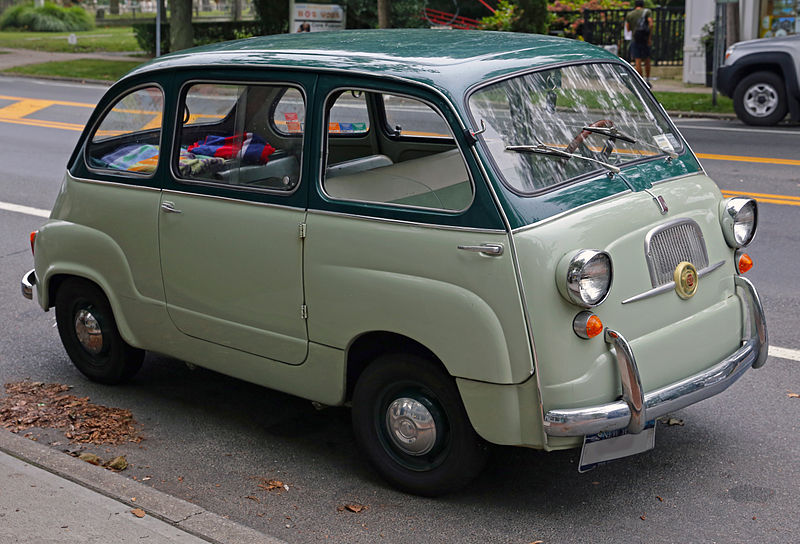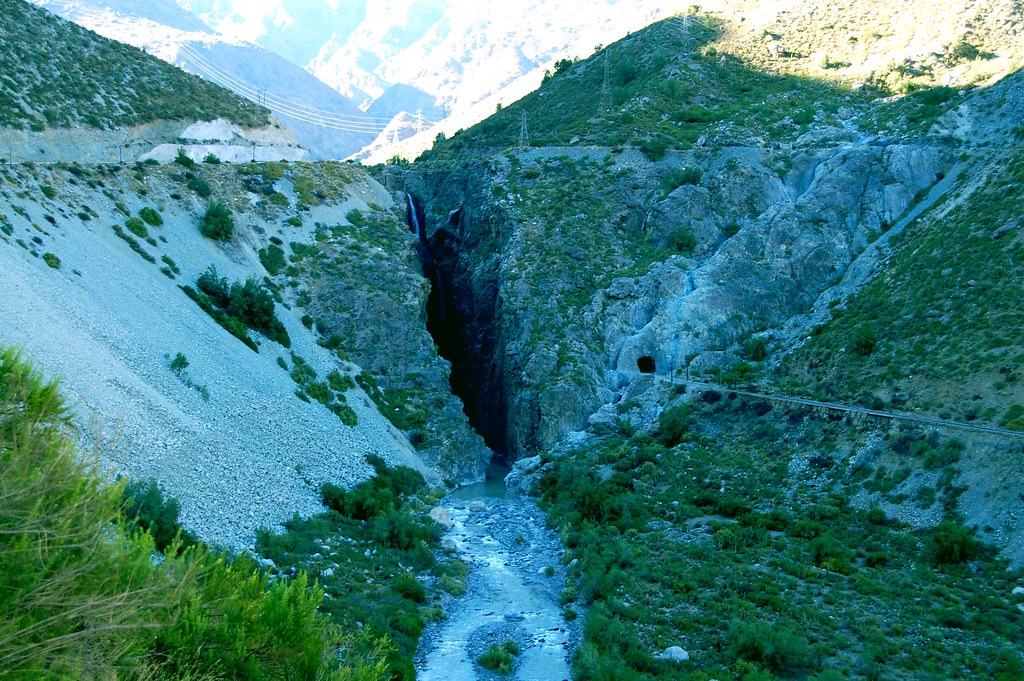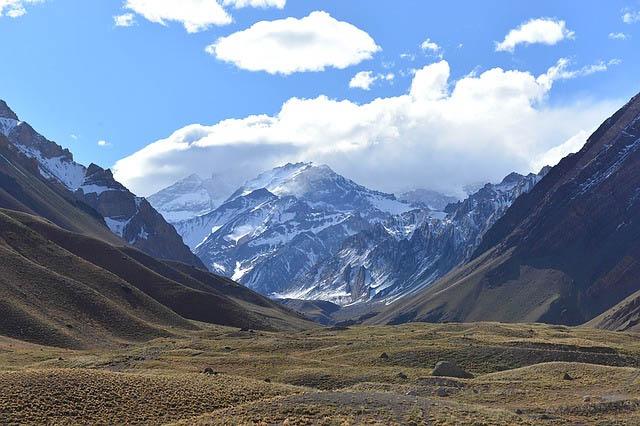And the mountains danced.
This story is a type of Fan-fiction and is based in the universe created by Inelia Benz in the book «The Return«. Inelia has not only been an inspiration to me, but she also helped me take the step into writing by gifting me the «Master Class» course by Neil Gaiman. One of my favourite authors.
As always, I would like to thank Loreto Alonso-Alegre for her comments on the first version and the indispensable edits and comments from Dolores Póliz.
Dedicated to my sister Inelia.
AND THE MOUNTAINS DANCED
JOURNEY IN THE BACKWARDS CAR
The journey had been quite dull until they reached the foothills of the mountains. They looked massive. Roberto knew they were that large because they were young, but that not only these, but the whole Andes Range was young too. In one of those strange «coincidences», his Uncle Arturo, who was glancing at them from the corner of his eye while driving, said the same.
«Earthquakes are proof of it. The land is still settling and everything shakes when the tectonic plates—…» Arturo stopped talking and observed them in the car’s rearview mirror, remembering that Roberto and Cecilia were «special». According to some family members, they had mental problems, and even one of the grandparents called them retarded since, at the age of three, the girl did not speak, and few understood what Roberto said. Cecilia, who was watching the landscape through the window, turned and looked at him for a few seconds, then smiled, as her uncle continued the explanation as if he were talking to normal children. «Well, the tectonic plates collide and create so much friction and pressure that sometimes it piles up and then escapes as a big explosion of energy, which we call earthquakes or tremors—». He looked at them again in the rearview mirror and smiled at the girl.
«It’s more when the pressure builds up,» said Roberto aloud, «the friction usually creates small tremors and sometimes feeds a volcano.» The change in body position and the look his uncle gave them clearly told the two children that he had been greatly surprised. «Thank you,» he replied with a smile, «that makes a lot of sense, and it’s something I didn’t know.» Roberto observed his uncle’s body language and realised he was telling the truth.
«He’s friendlier than the other uncles,» Cecilia said. «He suspects we’re not daft, like granddad says.» For a three-year-old, Cecilia had a remarkably advanced ability to comprehend her surroundings and people. «So, the visit to Saladillo will be more entertaining than I expected. I thought we were in for another limited and boring adult,» she replied. Although the whole conversation, as was their custom, had been telepathic. Their uncle hadn’t noticed or heard a thing.
It was July, and with that came the winter holidays, so they took the opportunity to send them to their uncles because their other sister, María, had worsened with her «hysterical» attacks, and their parents could only cope with her. Or at least that’s what they were told. Coincidentally, Arturo was visiting relatives in the city and could take them, so their mother and aunt organised everything, and in less than two hours, the suitcases were packed, and the children were saying goodbye to their parents.
«A good bath before the journey would have been nice,» their mother said aloud as she helped them get into the car.
«We showered this morning,» Roberto replied. «Cecilia told me you’d send us away and forget to bathe us, so we had to take the initiative.» His mother stopped what she was doing and looked at him in surprise. «Please. You know full well that your sister doesn’t talk.» To which he responded the same thing he always said when that topic came up:
«She talks to me, and she talks to you too, but you’re the ones who don’t listen.»
«Let’s not start that again. Come here, and I’ll give you a hug.» His mother gave him a tight hug and a big kiss on the cheek. Roberto made a mental note to wipe off the lipstick when she wasn’t looking. His father gave him another hug and ruffled his entire head of hair with his large hands. Cecilia went through the same process, but she did so laughing and screaming with joy.
He was rather fond of his uncle’s car. It was as odd and different as its owner, and one rarely saw another like it on the road. It was as if someone had taken a Fiat 500 and shifted the windscreen forward to make more room, which they had accomplished, but it always gave Roberto the sensation that the car was driving backwards since the front was at the back and the back at the front. One day, he told his father, but he, being a musician, didn’t understand a thing when Roberto explained that, from an aerodynamic perspective, the car was backwards.
Fiat 600 Multipla – Model 100.108
Roberto noticed they were gaining altitude when his ears started to pop. He’d read that yawning could alleviate this, so taking advantage of his boredom, he managed a great yawn that cleared his ears. He looked at his sister and saw her sticking her little finger in her ear, trying to get rid of the strange sensation.
«Yawning gets rid of it,» he told his sister.
«I’m not sleepy.» she replied.
«Well, you can still do the yawning motion and that might help,» he suggested. Cecilia formed her mouth into an «O» shape for a while.
«It’s not working,» she told her brother.
«As it’s just a matter of balancing the internal pressure with the external, laughing might also do the trick,» replied Roberto.
«Ha, ha, ha, ha,» she said.
«Cecilia. It’s a physical problem. Saying ‘ha, ha, ha’ in your mind isn’t going to work. You have to actually laugh, and out loud,» he explained.
«I can’t think of anything funn…» Cecilia didn’t finish her sentence before her brother was tickling her. The first thing she did was scream, giving their uncle quite the fright, and then she laughed with that infectious laughter of hers that always managed to make everyone smile or laugh with her.
Suddenly, Cecilia stopped laughing and loudly said:
«It worked!»
«What worked?» their uncle asked, surprised to hear Cecilia speaking.
«Cecilia’s ears were popping, and the laughter sorted it out,» Roberto replied.
«I usually yawn,» their uncle said.
After a while, seeing that Cecilia was getting more and more restless and starting to fidget in her seat, Arturo told them they were going to stop for a while to stretch their legs. He paused and, realising what he’d just said, clarified that they were going to walk around for a bit, and that later he would show them an interesting place.
Around ten minutes later, when the precipice to the right of the road had become sheer, they stopped at a spot where they could park and get out of the car.
«This is called ‘The Soldier’s Leap,'» their uncle told them. «During the war of independence, a Chilean soldier leapt across that gap, escaping from the Spanish.»
The small plateau where they were ended in a vertical drop of nearly a hundred metres, at the bottom of which flowed a small river. At least it seemed small from that height. About eight metres away was another mountain, separated by the river, which must have once joined the two peaks.
«No man could jump that distance,» said Roberto.
The Soldier’s Leap
«He was on horseback,» his uncle replied, «and I know, no horse could make it either, but that’s the legend of this place.»
They all fell silent, looking at the other side of the great and deep gap, imagining how it could have been done.
Cecilia, gazing at all the mountains surrounding them, took his hand and said in complete silence, «The mountains are young.»
«That’s it!» Roberto exclaimed. «The mountains are young, so with the earthquakes and tremors, some pieces will have crumbled away since then. It’s likely that the gap was much smaller in the time of that man.»
His uncle smiled at him. «You’re absolutely right. Time passes for everything, even for young mountains. Let’s head back to the car; it’s cold, and your aunt is waiting for us.»
SALADILLO
Despite his uncle’s tales of how the car had broken down, despite being relatively new, they arrived without a hitch at Aunt Rose’s house, named, like his mother, in English. The house was part of a row of identical terraced houses. They parked in front of the house, and as his uncle went in to announce their arrival, Roberto took the opportunity to survey the surroundings. The row of houses faced northwest towards a valley that the river had carved out over thousands of years. In the distance, ee could see peaks of smaller mountains around three thousand two hundred feet high. The village was situated at over five thousand feet above sea level. To his left and to the west was a massive stone wall. It appeared so straight that it gave the impression some titan had sliced a mountain in half with a giant sword. To the right, looking east, were much smaller hills filled with bushes and trees. Roberto thought it would be a fine place to explore as his gaze returned upwards following the rock wall to his left. Midway, he saw small birds flying and was beginning to doubt the scale of everything when he heard his Aunt Rose calling them.
“Roberto, Cecilia! What a joy to see you!” she exclaimed while sweeping Cecilia into her arms and giving him a hug and a kiss on the forehead. Their aunt, having noticed where he was looking, gazed in the same direction and said, “Bet you don’t know what those tiny birds up there are.” Roberto looked up, but it wasn’t clear to him. They were riding the thermals without flapping their wings, so they couldn’t be that small. “Some kind of hawk or kestrel?” he suggested.
“No,” his aunt replied, smiling. “They’re condors.” The boy’s eyes widened in astonishment. He knew that condors had a wingspan of nearly ten feet, which meant that his sense of scale was terribly confused. “But that means that wall is huge,” he responded to his aunt as they entered the house.
“Almost three thousand feet high,” she replied. “And there are even some mad folks who climb it. It’s called El Saladillo,” she added, suspecting that this kind of thing would interest him.
Inside, the house was more spacious than it appeared from the outside. Stepping in, one found themselves in an L-shaped open area with a living room to the left and directly ahead, a dining area adjoining the kitchen and bathroom. Stairs ascended to the second floor, down which Art and Anne, Roberto’s cousins, were coming. Art was about eight, two years younger than Roberto, and Anne was around five. Roberto greeted Art and immediately inquired if he had ever ventured into the wooded hills. Art responded that his parents wouldn’t allow him to go alone, and his friends were more interested in football than exploring barren hills. He was about to suggest they could explore together someday when he realized the adults had fallen silent, observing the girls playing with Art’s toy soldiers. It was clear they were engaged in a conversation, yet Anne was the only one speaking aloud. Cecilia gestured with her hands and expressed herself through facial expressions, but no sound came from her.
«Are they talking?» Arturo asked.
«Yes,» Rose replied.
«But that’s impossible. For that, you need two people speaking.»
«Just look at them,» Rose countered. «They’re obviously communicating. Don’t worry. Strange things always happen in my family,» she said to her husband as if it were the most normal thing in the world, then turned towards the kitchen. «Strange? I don’t think this compares to singing well and smoking joints,» her husband retorted. Rose turned and blew him a kiss.
From across the room, Roberto silently asked his sister, «Can you understand her?»
«Yes. But she can’t reply.»
«She doesn’t hear me.»
«I think it’s a thing with little kids. Or rather, little girls.»
«I suspect you’re the one with the ability, not her,» Roberto replied.
Cecilia shared a room with Anne, and Roberto with Art, which pleased Roberto as the room faced north, bathing in sunlight and offering a view of the entire valley fading into distant mountains. Directly across the road was a playground. That night, Aunt Rose explained that Art was terrified of earthquakes, and one must be cautious as he could panic and run off without awareness of his surroundings, easily getting lost. Roberto made a mental note to remember this and felt sorry for his cousin in a country like Chile, where earthquakes were common.
It rained for the next three days, but on the fourth, a magnificent sun emerged, warming even in winter. Roberto asked his aunt’s permission to explore the hill. She was hesitant, fearing mud and puddles, but he convinced her by pointing out they’d been cooped up for four days and needed some outdoor time. Finally relenting, she provided rubber boots and old clothes, which proved useful as they were all covered in mud within fifteen minutes of walking among the trees at the hill’s base. Muddy and happy.
They discovered an old treehouse with a roof of torn plastic bags, seemingly ownerless. The sun shone warmly as they climbed up. After a while, Anne decided she disliked the height and was hungry, so she wanted to return home. Roberto, having spotted a trail leading up the hill from the treehouse, tried to persuade her to stay, but to no avail. He decided to escort Anne home. On his way back through the woods, he saw a woman watching him, who seemed to vanish among the trees. Returning to the treehouse, he found Art eager to continue uphill, and Cecilia still there, gazing skyward.
«There’s someone evil interested in us,» she told him mentally. Roberto looked up but saw only a near-clear sky.
«Not silly. They’re too high up. We can’t see them.»
«Well, the sun’s about to hide behind the stone wall, so we should move on or head back,» he said aloud for Art’s benefit. The boys shouted in unison, «Let’s go on! Let’s go on!»
Roberto looked up again. His experience had taught him that most of the bizarre things his little sister mentioned usually turned out to be real. He saw nothing but condors flying high but made another mental note.
«Don’t worry. Susie’s coming with us,» Cecilia said.
«Imaginary friends are fine for playing at home, but not much use in the woods,» he replied.
«I’ve told you. Susie’s not imaginary!»
«I’ll believe it when I see her. Now let’s go on.»
The hill was about five hundred meters high from its base. Elsewhere, it might have been called a mountain, but compared to the surrounding giants, it seemed small. Yet, considering they were already at sixteen hundred meters above sea level, the summit was indeed high. Roberto had learned at his young age, as Einstein said, that everything depended on the observer’s point of view.
They reached the halfway point in no time, singing, telling scary, fantasy, or spaceship stories, and playing hide-and-seek. Realizing the sun was nearing the tip of the enormous stone wall, indicating almost two hours had passed, and feeling his stomach agree, Roberto knew it was time to head back. He was about to voice this when Cecilia mentally interjected.
«Someone lives there.»
Turning to his sister, he saw her pointing a few meters ahead to a flatter area – the entrance to a cave. Art, spooked by the ghost stories, refused to approach. Roberto, observing the surroundings and deducing some animal’s residence, didn’t notice Cecilia entering the cave. Rushing after her, he realized they were in an animal’s dwelling and imagined the glowing eyes of a puma accompanied by a growling sound. He decided they shouldn’t become anyone’s dinner.
«Let’s leave. The owner might not like us invading their territory.»
Just then, he thought he heard something from the cave’s depths.
«Shit!» he exclaimed aloud.
«You swore!» his sister chided. «Little kids can’t say that.» He was about to retort he wasn’t a little kid when the strange noise repeated. Grabbing Cecilia’s hand, he led her outside.
«Wait!» Cecilia said at the cave entrance, looking up for a moment. «On three, we run,» she declared, pausing.
«One… two… three!» she shouted, pulling her brother as they ran toward Art, who was looking up in fright. Roberto, knowing his sister’s specialness, simply ran with her, not questioning what was happening. Just before reaching Art, a shadow covered the sun, and he turned, terrified, running downhill on the earlier path. The shadow reappeared ahead, and Roberto realized Cecilia was laughing joyfully as they ran. Her laughter, as usual, brought a smile to his face, calming him enough to glance skyward. A huge condor flew a few meters above, not approaching, but maintaining its height with them. Upon reaching the trees, which felt like an eternity, the condor soared away. They all stopped under the branches to catch their breath.
«Do you think it wanted to eat us?» Art asked.
«No,» Cecilia replied aloud, and mentally added, «It was really protecting us. It helped us reach the trees. I asked it to, and it agreed since its family was in the cave, and the mom was getting grumpy.»
RECONNAISSANCE ORBIT
The reconnaissance vessel Ninhursag-TXi of the local Anunnaki fleet completed its third orbit around the southern hemisphere of the planet. The third officer, responsible for communications, had sensed the presence of someone from the empire, but was not entirely sure. Protocol dictated that before logging anything in the ship’s log, one had to be absolutely certain, so they were on their third rotation.
As they passed over the great mountain range that followed the continent from south to north, Enlil, the third officer, felt the presence once more. In these situations, his decisions were of utmost importance, so he took control of the vessel and halted it above the mountains, almost directly above a human mining settlement. This did not make much sense, as there were no known groups in the region. The nearest one was hundreds of kilometres further south, on an archaeological mission.
The information he could sense, based on years of training and genetic modification spanning generations, told him that nearby there was an Anunnaki baby of some importance. It made no sense, but protocol demanded he investigate. He ordered the ship’s artificial intelligence to scan all frequencies for any kind of communication, but it responded that there was nothing at all, only human communication.
Even though everything pointed to an error, Enlil decided to follow protocol and activated the optical engine. With it engaged, he zoomed in on the suspected area, but all he saw were two human children playing on a hill. One of them, who was running towards an opening in the mountain wall, gave a positive result, but it was very subtle. Most likely vestiges of some genetic experiment many generations ago. Nothing that would have generated the presence detected. He waited a little for the boy to come out of the cave but had already decided it was an error. At that moment, the captain reminded him that the rest had work to do and that he needed to make a decision, whether to investigate further or continue with the routine. Just to be sure, Anlil looked at the image again, but all it showed was the back of one of the enormous birds that inhabited those mountains, covering everything. He turned off the image and informed the captain that it had been a false alarm. It was the first time that had happened to him.
THE MOUNTAIN DANCE
The following morning, upon waking, the children found everything blanketed in a metre-deep layer of snow. Roberto and Cecilia had never seen such a thing and thought it a truly magical situation. Both looked expectantly at their Aunt Rose to see if she would let them out. She, who went through the same routine every winter since they had come to live there, told them:
«First, you must have a warm and energising breakfast. After, put on something that will keep you warm, and then you may go out.»
Breakfast was a bowl of oats boiled in milk until the flakes puffed up and softened, with a heaped spoonful of honey.
«Porridge!!» shouted Anne, Art, and Roberto, using the name their respective mothers gave that breakfast. Cecilia did too, but except for Roberto, nobody heard her.
Upon going out, Roberto and Cecilia resembled kittens seeing snow for the first time. They walked very carefully and touched it respectfully. Art and Anne, on the other hand, with great joy, threw themselves onto it and rolled around, almost getting buried. The other two didn’t wait long to join them, and in a few seconds, they all looked like snowmen.
They decided to go play at the playground, and Anne ran off in that direction, but she forgot that before reaching the road there was a large ditch where the new town drainage system would go. The snow had covered the ditch, and the wind made it look level with the rest of the ground. Even if she had remembered, Anne wouldn’t have known where the hole was. What the children saw was Anne running with small hops, and then suddenly just disappearing. All stood there, surprised, not knowing what had happened. Suddenly they heard Anne, as if from far away, asking for help. Roberto ran towards the cries, while Art ran towards the house to alert their parents. Approaching, Roberto saw a hole in the snow from where Anne’s voice was coming. He carefully approached, realising what had happened, and saw Anne almost entirely buried in the snow, trying to remove the snow from her mouth. She looked distressed, so Roberto jumped beside his cousin and helped her remove the snow from her face and stand up. At that moment, Uncle Arturo arrived running and helped them out. It all ended as just a scare, but for Roberto, who analysed everything, realised that snow was very beautiful and entertaining, but very treacherous. He decided that from that moment on, he would treat snow the same way he treated the sea. With a great deal of respect and distrust.
As Anne was well and wished to play a while longer, her uncle accompanied them, taking a detour around the ditch to reach the playground. With all the snow, it was far more entertaining, especially when their uncle showed them how to make snowballs. In the end, they were all exhausted, sweating from the heat, and collapsed in the snow.
That night, all the children went to bed early, much to the delight of the adults. After brushing his teeth, Roberto climbed into bed, and Art asked him to tell a story. So, Roberto decided to recount the legend of Ulysses and the Sirens, but then realised he had forgotten to turn off the light. Their beds were positioned with the headboards side by side next to the window, but the light switch was by the door on the other side of the room. So, he got up and turned off the light. As he settled back into bed and his eyes adjusted to the darkness, he noticed a white light illuminating everything. Looking out of the window, he saw the full moon lighting up the room. He lay back down and began to tell the old Greek legend.
Not five minutes had passed when they began to hear a multitude of dogs barking and howling. Suddenly, and all at once, the dogs fell silent. So, Roberto stopped telling the story of Ulysses and listened attentively. He knew that if the dogs suddenly went quiet, it was a sign that an earthquake was approaching. And there it was, the second sign: a noise like a slow, very, very heavy train approaching. He looked at his cousin and calmly told him that these houses were built to be earthquake-proof. They had chains inside the walls, so they never broke. Art, of course, realised the change of subject was for a reason and could hear the deep rumble starting to fill everything. He opened his eyes wide, sat up in bed a little, and looked worried.
«Don’t worry,» said Roberto. «It’ll be a little quake; they don’t do any harm.» And at that moment, the whole house shook, and the lights went out in the entire town. The lamp started to sway from side to side, and from their room, they could hear the glasses in the kitchen cupboard tinkling like a bunch of mad little bells. Art watched him intently and, seeing him so relaxed, calmed down a bit.
«The security system has cut the power to the whole town. Let’s pretend we’re in a sleeping carriage on the Orient Express. We’re two famous detectives on the trail of a very dangerous murderer,» he said as their beds shook and moved from side to side. Art, now clearly more at ease, smiled. It all seemed like the special effects from his cousin’s stories. Suddenly, out of the corner of his eye, Art saw something and quickly turned towards the window. He went pale, and his expression changed to absolute terror. He screamed, jumped out of bed, and ran out of the room, taking the stairs two at a time. During all this time, his mother had had time to react and was already waiting for him in the living room to catch him before he could run out of the house. Roberto hadn’t had time to do anything, but it was clear that Art had seen something. He got out of bed and looked out of the window, holding on to it to keep his balance as the house continued to shake.
What he saw shattered his mental framework of reality for the rest of his life. The night was quite clear, and the full moon illuminated the snow-covered mountains that seemed to gleam. He could even see the more distant ones due to their intense brightness. Mountains that rose and fell as if floating in a sea full of waves shining beneath the moon. He couldn’t stop staring at them. A mountain was the most fixed and immovable thing he had ever known, but there they were like boats in a storm. Suddenly, something large and dark moved to his left.
The stone mass of well over three thousand feet was moving. He looked up and realized it was covering almost the entire sky and was getting closer and closer. It was what Art had seen. The mass was approaching, and now it covered the whole sky, filling everything with the deepest darkness. «Now I know how an ant feels just before the shoe crushes it,» thought Roberto. «I’m going to die,» and for a moment he was afraid but also curious to know what would happen next. But what happened was that the great stone wall stopped and then, at the same speed, returned to its place. Roberto was in shock and couldn’t shake off the feeling of how insignificant he was in comparison to the forces of nature. He didn’t take his eyes off the stone mass, but it didn’t move again. At that moment, he became aware that someone was talking to him and tugging at his pyjamas.
«Are you okay? Where’s the giant shoe? Is it going to step on us?» asked Cecilia in his head.
He turned towards her and, for the first time in Cecilia’s short life, he saw concern and fear. He took a deep breath and realized that the house was moving less.
«Have you ever seen mountains dancing?»
«Mountains don’t dance, silly. Only people do.»
Roberto crouched down and picked up his sister in his arms.
«Well, look at those over there,» he said. «What to us is a deep noise that scares, to them is music, so they dance.» Cecilia looked intently at the mountains that were still moving in the distance, looked at him, and then again at the mountains and clapped. She asked him to put her down and began to dance around the room to a slow rhythm that flowed with the now almost imperceptible sound of the earthquake.
«Let’s dance, Roberto. That way, we’ll be the first to dance with the mountains,» and Roberto, Cecilia, and the Andes danced to the same rhythm until the music ended and everything returned to a human scale. A limited and tiny scale that people have of reality, but which for them would change again a few months later.
Comments
Your opinions are very important to me and they help me keep writing.







0 comentarios